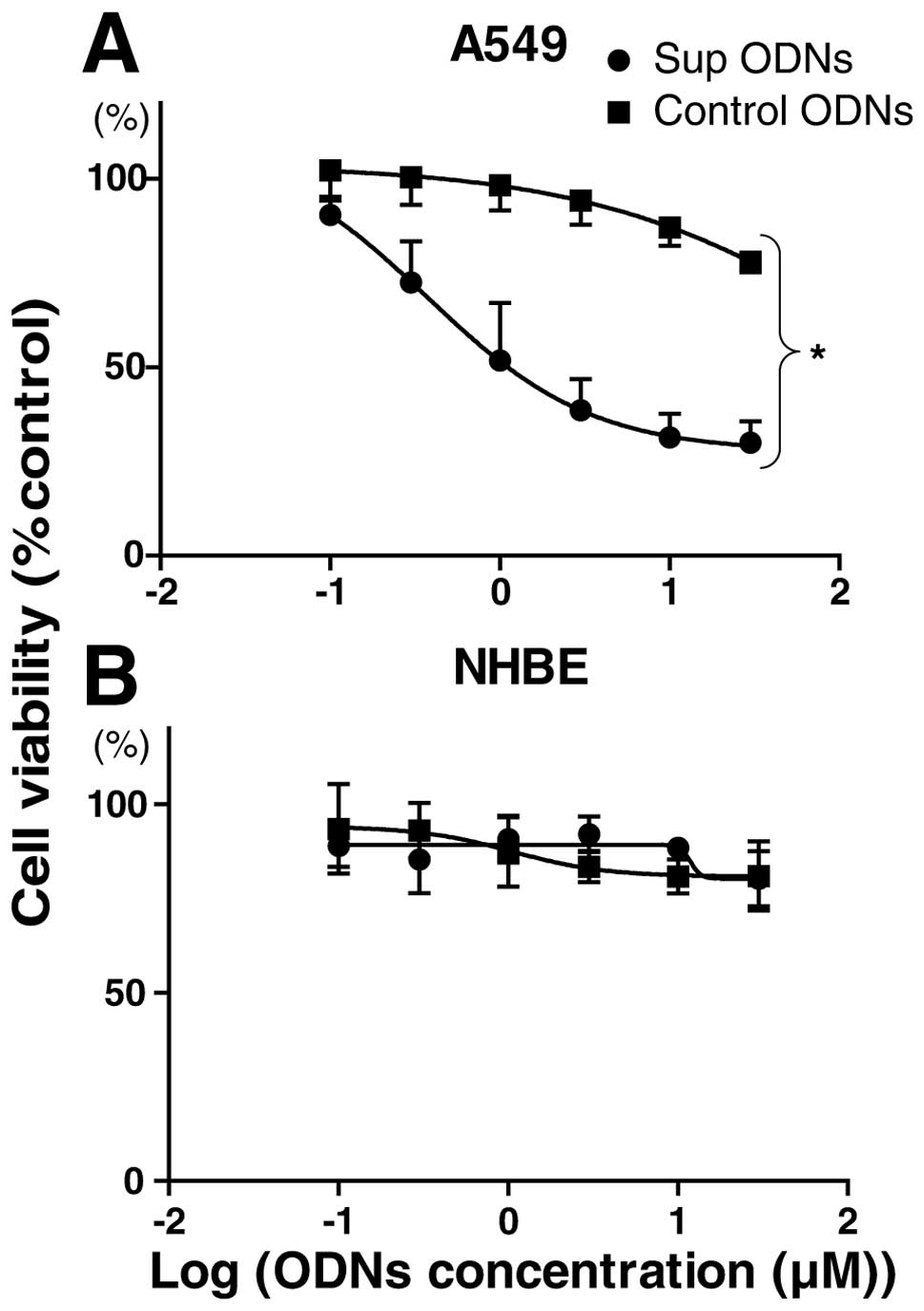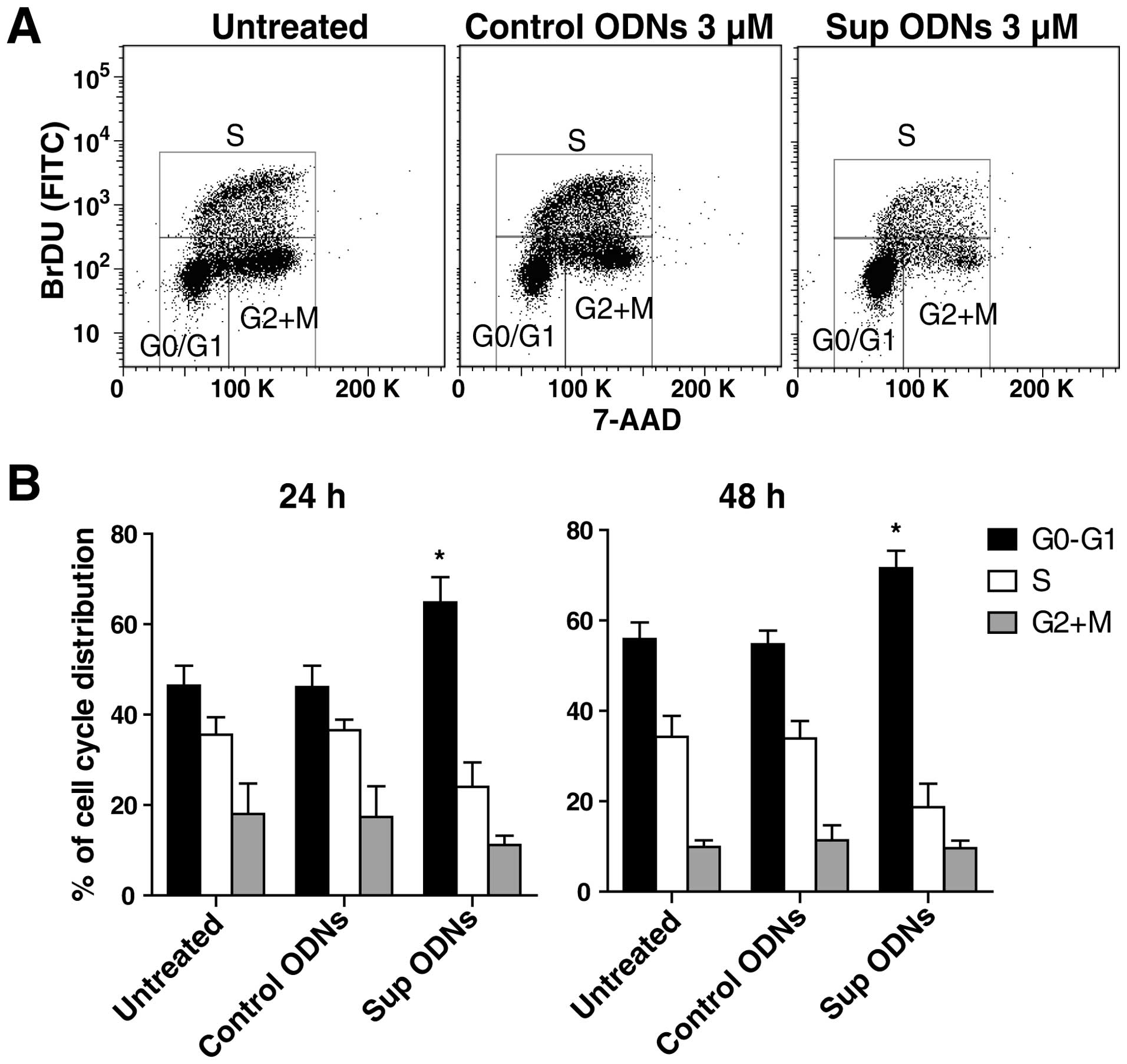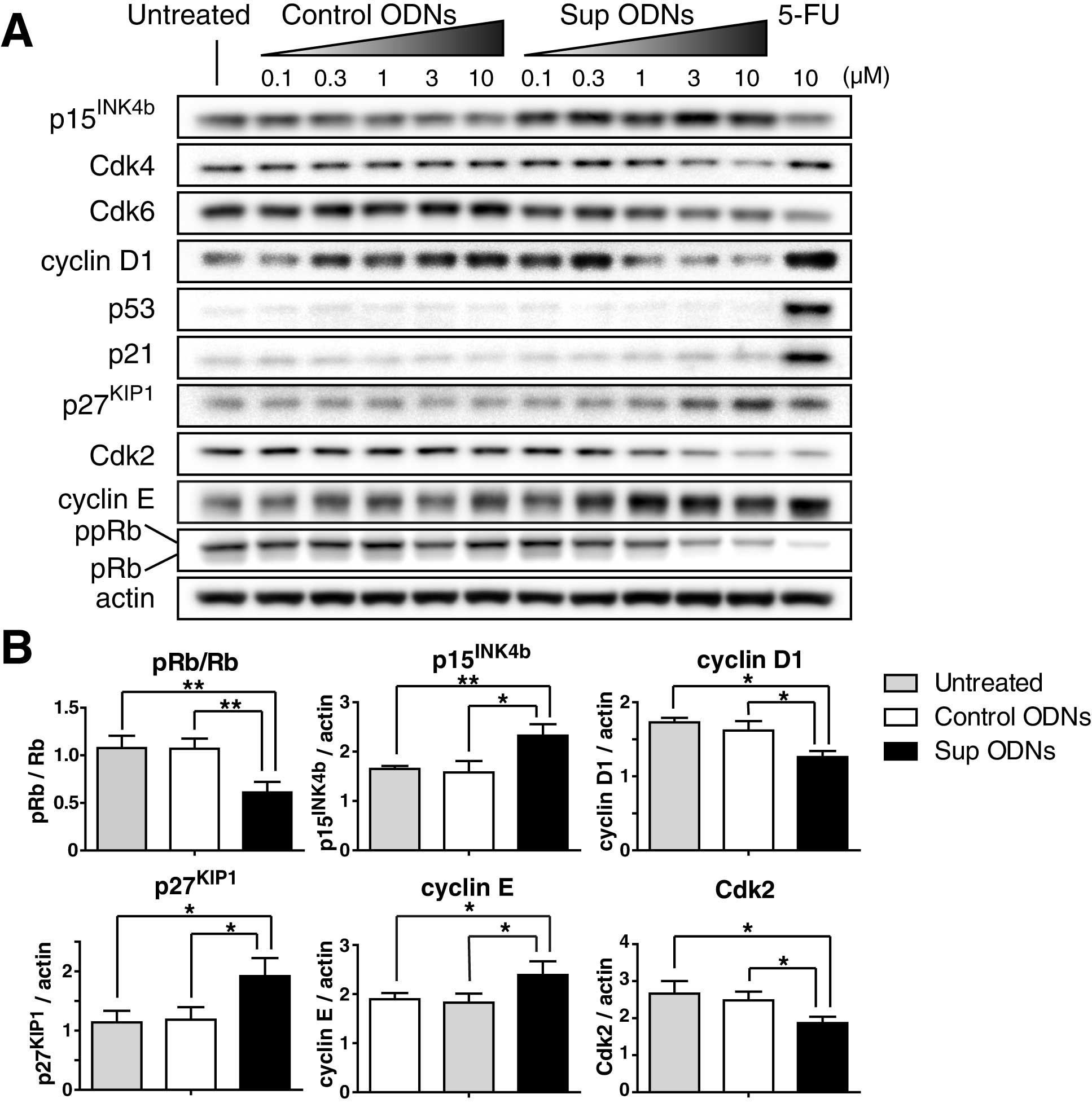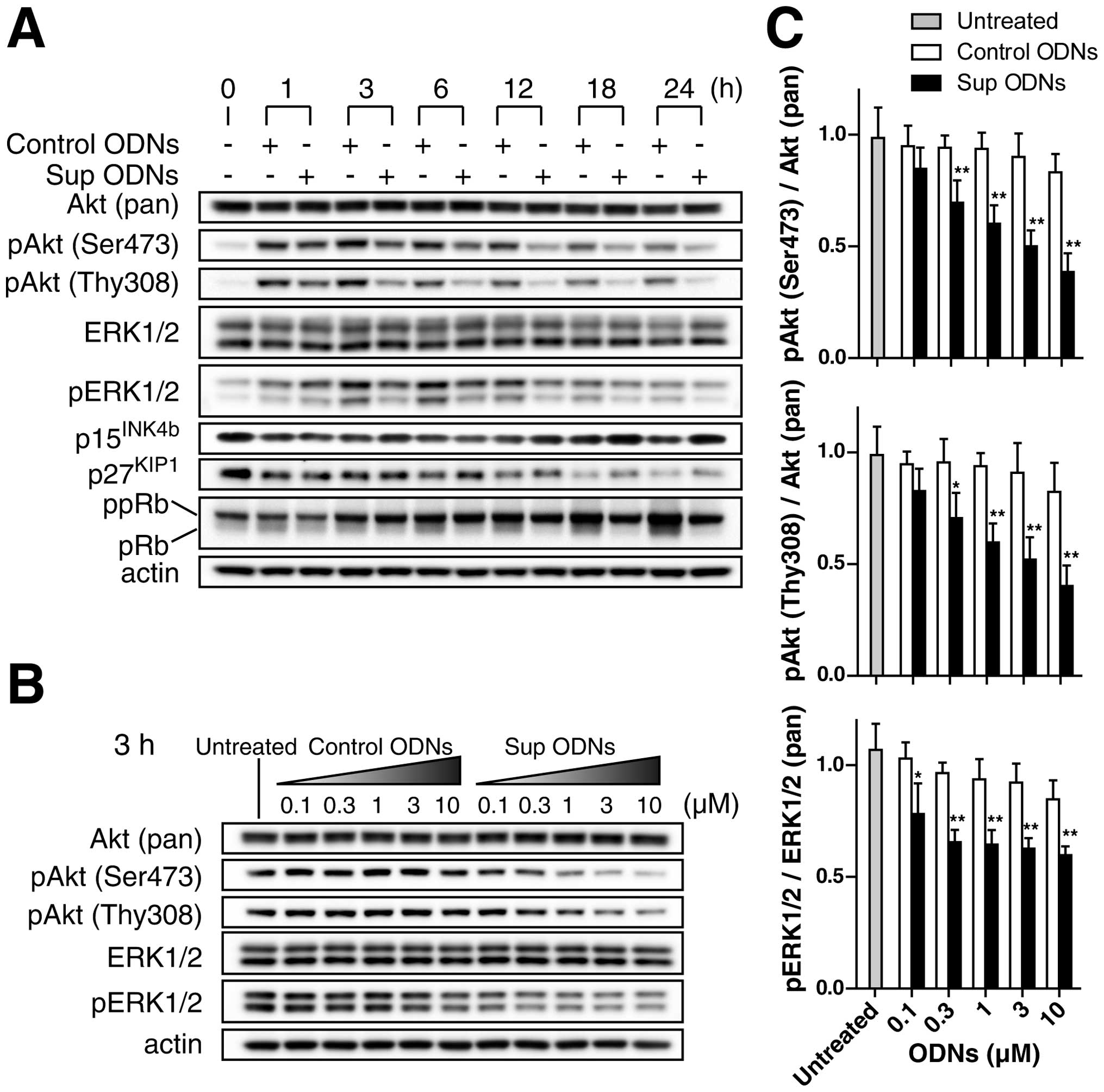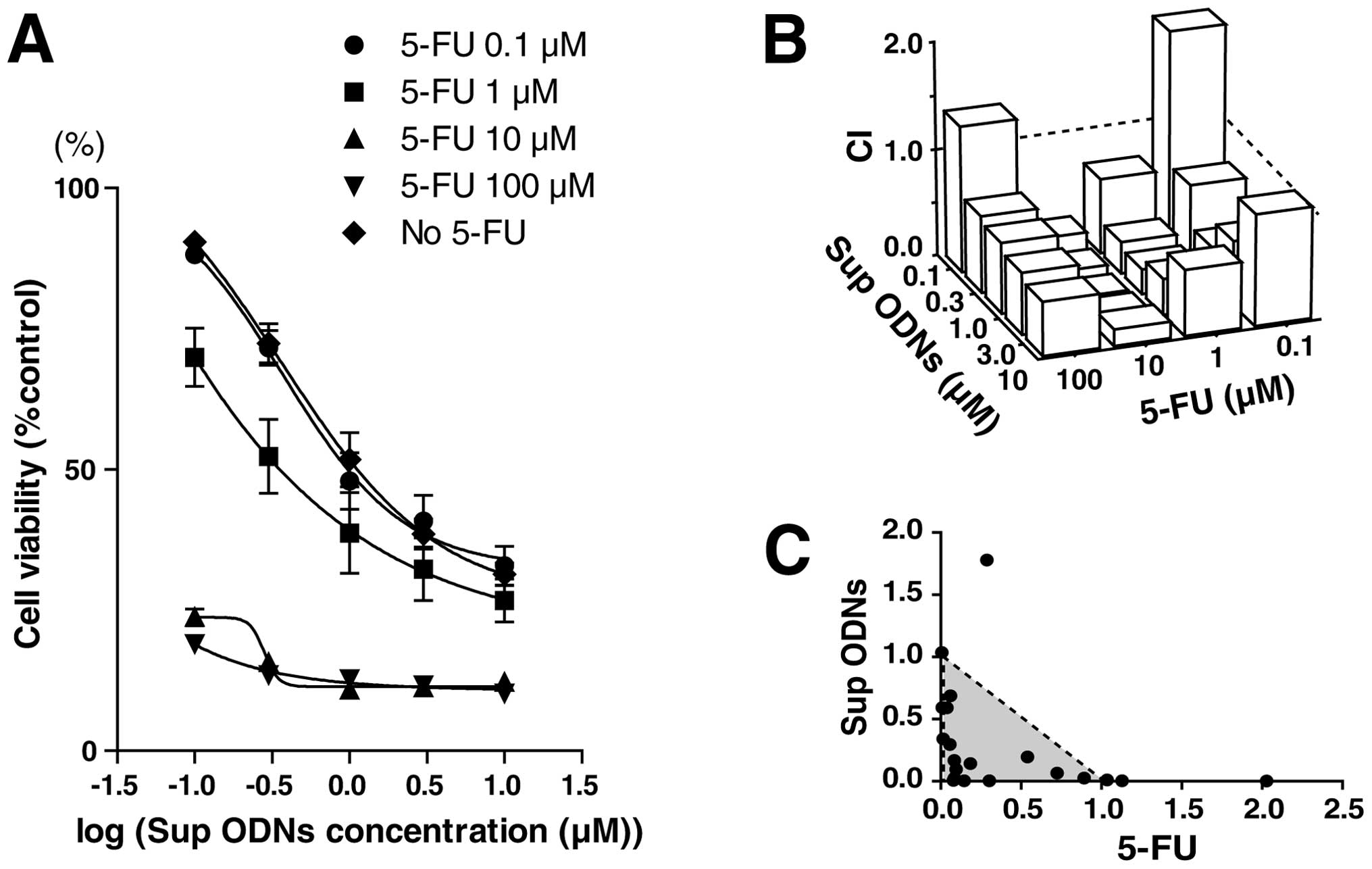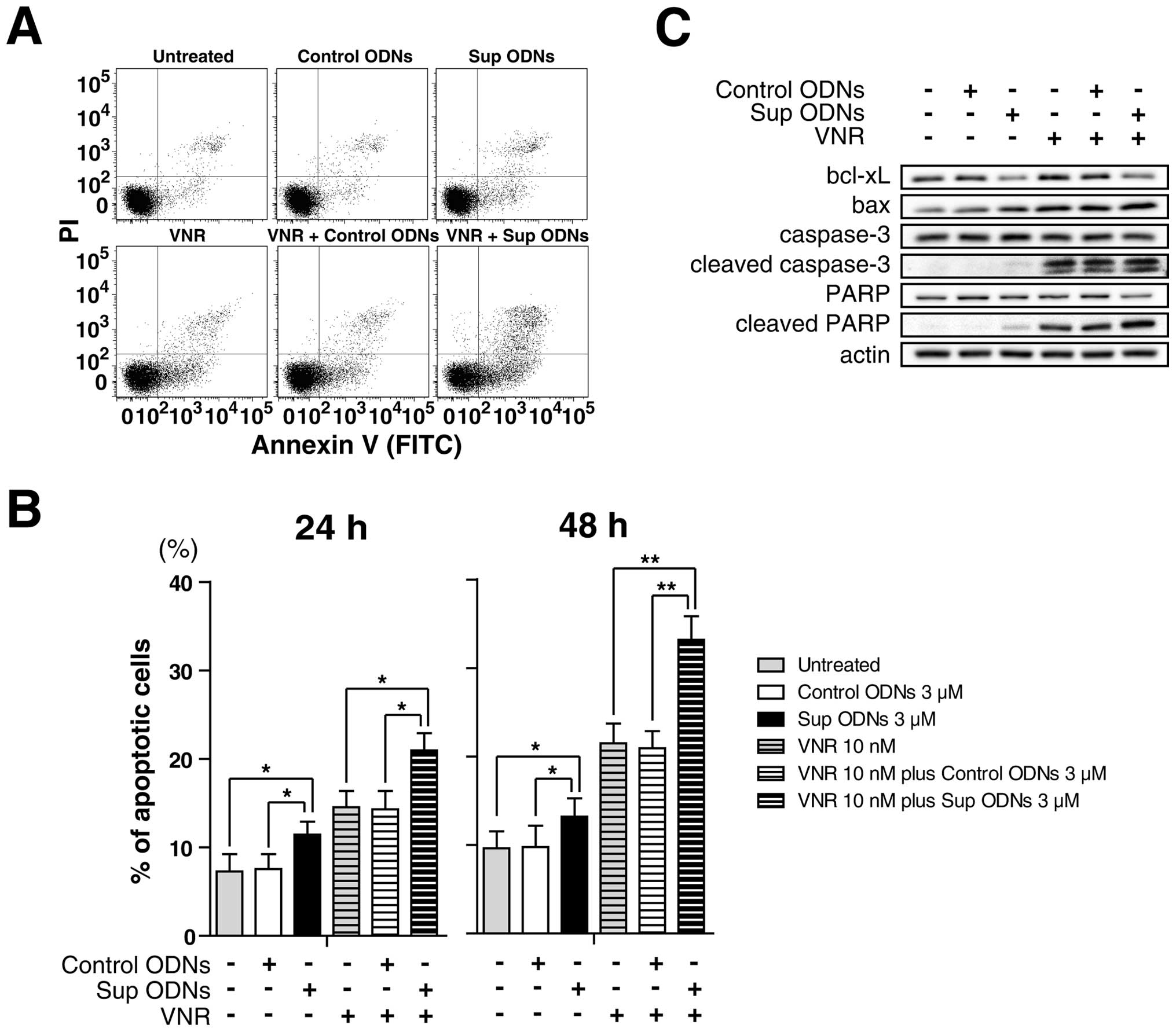|
1.
|
Jemal A, Bray F, Center MM, Ferlay J, Ward
E and Forman D: Global cancer statistics. CA Cancer J Clin.
61:69–90. 2011. View Article : Google Scholar
|
|
2.
|
Sandler AB, Nemunaitis J, Denham C, et al:
Phase III trial of gemcitabine plus cisplatin versus cisplatin
alone in patients with locally advanced or metastatic
non-small-cell lung cancer. J Clin Oncol. 18:122–130.
2000.PubMed/NCBI
|
|
3.
|
Giancotti FG and Ruoslahti E: Integrin
signaling. Science. 285:1028–1032. 1999. View Article : Google Scholar : PubMed/NCBI
|
|
4.
|
Okamura M, Yamaji S, Nagashima Y, et al:
Prognostic value of integrin beta1-ILK-pAkt signaling pathway in
non-small cell lung cancer. Hum Pathol. 38:1081–1091. 2007.
View Article : Google Scholar : PubMed/NCBI
|
|
5.
|
Vicent S, Lopez-Picazo JM, Toledo G, et
al: ERK1/2 is activated in non-small-cell lung cancer and
associated with advanced tumours. Br J Cancer. 90:1047–1052. 2004.
View Article : Google Scholar : PubMed/NCBI
|
|
6.
|
Roberts PJ and Der CJ: Targeting the
Raf-MEK-ERK mitogen-activated protein kinase cascade for the
treatment of cancer. Oncogene. 26:3291–3310. 2007. View Article : Google Scholar
|
|
7.
|
Balkwill F and Mantovani A: Inflammation
and cancer: back to Virchow? Lancet. 357:539–545. 2001. View Article : Google Scholar : PubMed/NCBI
|
|
8.
|
Coussens LM and Werb Z: Inflammation and
cancer. Nature. 420:860–867. 2002. View Article : Google Scholar : PubMed/NCBI
|
|
9.
|
Dong L, Ito S, Ishii KJ and Klinman DM:
Suppressive oligo-nucleotides protect against collagen-induced
arthritis in mice. Arthritis Rheum. 50:1686–1689. 2004. View Article : Google Scholar : PubMed/NCBI
|
|
10.
|
Ikeuchi H, Kinjo T and Klinman DM: Effect
of suppressive oligodeoxynucleotides on the development of
inflammation-induced papillomas. Cancer Prev Res (Phila).
4:752–757. 2011. View Article : Google Scholar : PubMed/NCBI
|
|
11.
|
Zeuner RA, Ishii KJ, Lizak MJ, et al:
Reduction of CpG-induced arthritis by suppressive
oligodeoxynucleotides. Arthritis Rheum. 46:2219–2224. 2002.
View Article : Google Scholar : PubMed/NCBI
|
|
12.
|
Zeuner RA, Verthelyi D, Gursel M, Ishii KJ
and Klinman DM: Influence of stimulatory and suppressive DNA motifs
on host susceptibility to inflammatory arthritis. Arthritis Rheum.
48:1701–1707. 2003. View Article : Google Scholar : PubMed/NCBI
|
|
13.
|
Shirota H, Gursel M and Klinman DM:
Suppressive oligodeoxynucleotides inhibit Th1 differentiation by
blocking IFN-gamma- and IL-12-mediated signaling. J Immunol.
173:5002–5007. 2004. View Article : Google Scholar : PubMed/NCBI
|
|
14.
|
Shirota H, Gursel I, Gursel M and Klinman
DM: Suppressive oligodeoxynucleotides protect mice from lethal
endotoxic shock. J Immunol. 174:4579–4583. 2005. View Article : Google Scholar : PubMed/NCBI
|
|
15.
|
Sato T, Shimosato T, Alvord WG and Klinman
DM: Suppressive oligodeoxynucleotides inhibit silica-induced
pulmonary inflammation. J Immunol. 180:7648–7654. 2008. View Article : Google Scholar : PubMed/NCBI
|
|
16.
|
Gursel I, Gursel M, Yamada H, Ishii KJ,
Takeshita F and Klinman DM: Repetitive elements in mammalian
telomeres suppress bacterial DNA-induced immune activation. J
Immunol. 171:1393–1400. 2003. View Article : Google Scholar : PubMed/NCBI
|
|
17.
|
Park KH, Seol JY, Yoo CG, et al:
Adenovirus expressing p27(Kip1) induces growth arrest of lung
cancer cell lines and suppresses the growth of established lung
cancer xenografts. Lung Cancer. 31:149–155. 2001. View Article : Google Scholar : PubMed/NCBI
|
|
18.
|
Sandor V, Senderowicz A, Mertins S, et al:
P21-dependent g(1) arrest with downregulation of cyclin D1 and
upregulation of cyclin E by the histone deacetylase inhibitor
FR901228. Br J Cancer. 83:817–825. 2000. View Article : Google Scholar : PubMed/NCBI
|
|
19.
|
Weinberg RA: The retinoblastoma protein
and cell cycle control. Cell. 81:323–330. 1995. View Article : Google Scholar : PubMed/NCBI
|
|
20.
|
Sherr CJ and Roberts JM: CDK inhibitors:
positive and negative regulators of G1-phase progression. Genes
Dev. 13:1501–1512. 1999. View Article : Google Scholar : PubMed/NCBI
|
|
21.
|
Chou TC and Talalay P: Quantitative
analysis of dose-effect relationships: the combined effects of
multiple drugs or enzyme inhibitors. Adv Enzyme Regul. 22:27–55.
1984. View Article : Google Scholar : PubMed/NCBI
|
|
22.
|
Chou TC, Motzer RJ, Tong Y and Bosl GJ:
Computerized quantitation of synergism and antagonism of taxol,
topotecan, and cisplatin against human teratocarcinoma cell growth:
a rational approach to clinical protocol design. J Natl Cancer
Inst. 86:1517–1524. 1994. View Article : Google Scholar
|
|
23.
|
Li GZ, Eller MS, Hanna K and Gilchrest BA:
Signaling pathway requirements for induction of senescence by
telomere homolog oligonucleotides. Exp Cell Res. 301:189–200. 2004.
View Article : Google Scholar : PubMed/NCBI
|
|
24.
|
Yaar M, Eller MS, Panova I, et al:
Telomeric DNA induces apoptosis and senescence of human breast
carcinoma cells. Breast Cancer Res. 9:R132007. View Article : Google Scholar : PubMed/NCBI
|
|
25.
|
Longe HO, Romesser PB, Rankin AM, et al:
Telomere homolog oligonucleotides induce apoptosis in malignant but
not in normal lymphoid cells: mechanism and therapeutic potential.
Int J Cancer. 124:473–482. 2009. View Article : Google Scholar
|
|
26.
|
Guo XF and Cao EH: Telomeric plasmid
induces human cancer cell dysfunction depending on ATM activity.
Cell Biochem Funct. 28:381–386. 2010. View Article : Google Scholar : PubMed/NCBI
|
|
27.
|
Hall M and Peters G: Genetic alterations
of cyclins, cyclin-dependent kinases, and Cdk inhibitors in human
cancer. Adv Cancer Res. 68:67–108. 1996. View Article : Google Scholar : PubMed/NCBI
|
|
28.
|
Toyoshima H and Hunter T: p27, a novel
inhibitor of G1 cyclin-Cdk protein kinase activity, is related to
p21. Cell. 78:67–74. 1994. View Article : Google Scholar : PubMed/NCBI
|
|
29.
|
DeCaprio JA, Ludlow JW, Lynch D, et al:
The product of the retinoblastoma susceptibility gene has
properties of a cell cycle regulatory element. Cell. 58:1085–1095.
1989. View Article : Google Scholar : PubMed/NCBI
|
|
30.
|
Vivanco I and Sawyers CL: The
phosphatidylinositol 3-Kinase AKT pathway in human cancer. Nat Rev
Cancer. 2:489–501. 2002. View
Article : Google Scholar : PubMed/NCBI
|
|
31.
|
Engelman JA: Targeting PI3K signalling in
cancer: opportunities, challenges and limitations. Nat Rev Cancer.
9:550–562. 2009. View Article : Google Scholar : PubMed/NCBI
|
|
32.
|
Montagut C and Settleman J: Targeting the
RAF-MEK-ERK pathway in cancer therapy. Cancer Lett. 283:125–134.
2009. View Article : Google Scholar : PubMed/NCBI
|
|
33.
|
Pujol JL, Barlesi F and Daures JP: Should
chemotherapy combinations for advanced non-small cell lung cancer
be platinum-based? A meta-analysis of phase III randomized trials.
Lung Cancer. 51:335–345. 2006. View Article : Google Scholar : PubMed/NCBI
|
|
34.
|
Reck M, von Pawel J, Zatloukal P, et al:
Phase III trial of cisplatin plus gemcitabine with either placebo
or bevacizumab as first-line therapy for nonsquamous non-small-cell
lung cancer: AVAil. J Clin Oncol. 27:1227–1234. 2009. View Article : Google Scholar : PubMed/NCBI
|
|
35.
|
Sandler A, Gray R, Perry MC, et al:
Paclitaxel-carboplatin alone or with bevacizumab for non-small-cell
lung cancer. N Engl J Med. 355:2542–2550. 2006. View Article : Google Scholar : PubMed/NCBI
|
|
36.
|
Liu LF, Desai SD, Li TK, Mao Y, Sun M and
Sim SP: Mechanism of action of camptothecin. Ann NY Acad Sci.
922:1–10. 2000. View Article : Google Scholar
|
|
37.
|
Longley DB, Harkin DP and Johnston PG:
5-fluorouracil: mechanisms of action and clinical strategies. Nat
Rev Cancer. 3:330–338. 2003. View Article : Google Scholar : PubMed/NCBI
|
|
38.
|
Madrid LV, Wang CY, Guttridge DC,
Schottelius AJ, Baldwin AS Jr and Mayo MW: Akt suppresses apoptosis
by stimulating the transactivation potential of the RelA/p65
subunit of NF-kappaB. Mol Cell Biol. 20:1626–1638. 2000. View Article : Google Scholar : PubMed/NCBI
|
|
39.
|
Zaludova R, Zakovska A, Kasparkova J, et
al: DNA interactions of bifunctional dinuclear platinum(II)
antitumor agents. Eur J Biochem. 246:508–517. 1997. View Article : Google Scholar : PubMed/NCBI
|
|
40.
|
Reeder F, Guo Z, Murdoch PD, et al:
Platination of a GG site on single-stranded and double-stranded
forms of a 14-base oligonucleotide with diaqua cisplatin followed
by NMR and HPLC - influence of the platinum ligands and base
sequence on 5′-G versus 3′-G platination selectivity. Eur J
Biochem. 249:370–382. 1997.PubMed/NCBI
|
|
41.
|
Blommaert FA, van Dijk-Knijnenburg HC,
Dijt FJ, et al: Formation of DNA adducts by the anticancer drug
carboplatin: different nucleotide sequence preferences in vitro and
in cells. Biochemistry. 34:8474–8480. 1995. View Article : Google Scholar : PubMed/NCBI
|
|
42.
|
Van Triest B, Pinedo HM, Giaccone G and
Peters GJ: Downstream molecular determinants of response to
5-fluorouracil and anti-folate thymidylate synthase inhibitors. Ann
Oncol. 11:385–391. 2000.PubMed/NCBI
|















